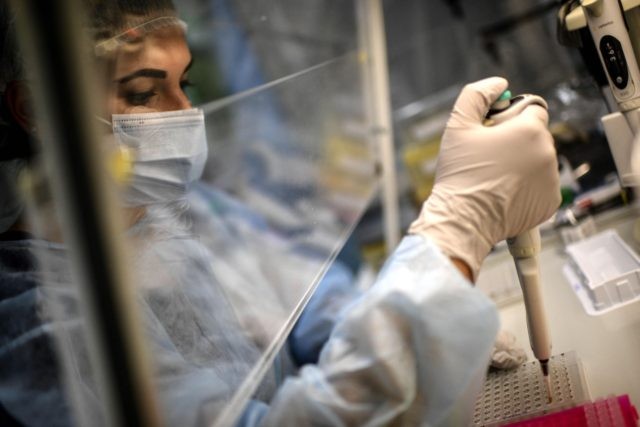Emails obtained from Dr. Anthony Fauci reveal a top Scripps Researcher was concerned the coronavirus could “look engineered.”
Director of Infectious Disease Genomics Kristian G. Andersen at the Scripps Research Institute wrote an email February 2020 to Fauci that some of the severe acute respiratory syndrome coronavirus 2 (SARS-CoV-2) characteristics “(potentially) look engineered.”
Scientist emailed Fauci saying coronavirus “looks engineered.” pic.twitter.com/gLukkNtLZC
— Wendell Husebø (@WendellHusebo) June 2, 2021
BuzzFeed’s emails, obtained through a Freedom of Information Act, request show Andersen also said “unusual features of the virus” made up a “really small part” of the genome, quantifying the features as less than 0.1 percent of the genome.
“We have a good team lined up to look very critically at this, so we should know much more at the end of the weekend,” Andersen continued in the email.
“I should mention that after discussions earlier today, Eddie, Bob, Mike, and myself all find the genome inconsistent with expectations from evolutionary theory,” Andersen added. “But we have to look at this much more closely and there are still further analyses to be done, so those opinions could still change.”
Andersen and his colleagues wrote an article March 2020 for the respected peer-reviewed journal Nature Medicine, asserting the coronavirus was not engineered in a laboratory but that “more scientific data could swing the balance of evidence to favor one hypothesis over another.”
“Although the evidence shows that SARS-CoV-2 is not a purposefully manipulated virus, it is currently impossible to prove or disprove the other theories of its origin described here,” the researchers wrote. “However, since we observed all notable SARS-CoV-2 features… in related coronaviruses in nature, we do not believe that any type of laboratory-based scenario is plausible.”
“More scientific data could swing the balance of evidence to favor one hypothesis over another. Obtaining related viral sequences from animal sources would be the most definitive way of revealing viral origins,” they wrote.
Andersen tweeted June 1 what he still believes to be true through his study:
As I have said many times, we seriously considered a lab leak a possibility.
However, significant new data, extensive analyses, and many discussions led to the conclusions in our paper.
What the email shows, is a clear example of the scientific process.https://t.co/54pmeyTkV5 https://t.co/ckkgsu780X
— Kristian G. Andersen (@K_G_Andersen) June 1, 2021

COMMENTS
Please let us know if you're having issues with commenting.